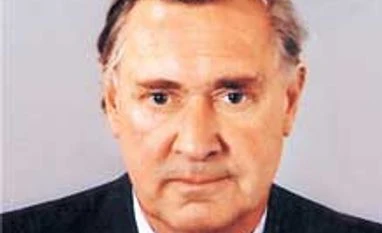Wouter Kolff has served as an independent director with YES Bank between 2004 and 2012. He has also served on various management and board positions with Rabobank, including as the vice-chairman of the board of Rabobank International from 1990 to 2006. In an interview with Somasroy Chakraborty, he shares his views on the recent public dispute over board membership in YES Bank. Excerpts:
What is your opinion on the dispute over board membership in YES Bank?
The ongoing unilateral case by Madhu Kapur on YES Bank, requesting for a stay on the appointments of directors, is not a maintainable case. In the Banking Regulation Act, the appointment of directors by the board and the final approval by the general body of shareholders cannot be challenged before a court of law. When the matter comes up for hearing on July 29, the high court is also likely to take this view.
As co-promoter, does Madhu Kapur have the right to jointly recommend directors on the bank’s board?
It has been alleged that some directors on the board do not meet RBI’s ‘fit and proper’ criteria and are older than the prescribed age of 35-65 years. What are your views on this?
This is a highly unverified and inaccurate allegation by Madhu Kapur. RBI had through a circular dated September 9, 2002, relaxed the upper age limit for non-executive directors by five years and specified 70 years as the upper age limit. This circular is available in public domain.
Do you think the board membership issue is instigated by a rival bank?
I have recently seen such coverage on a new channel. However, I cannot comment on speculation. What I have not understood though, yet, is the real motivation behind Madhu and (her daughter) Shagun Gogia's sustained and unilateral assault on the bank and its board. They have personally, as a family, only gained significantly over the past 4-5 years in terms of their wealth, which has grown to around Rs 2,400 crore. The bank has also been performing very well. So, Madhu and Shagun's sudden actions are unexplainable.
What is your opinion on the dispute over board membership in YES Bank?
The ongoing unilateral case by Madhu Kapur on YES Bank, requesting for a stay on the appointments of directors, is not a maintainable case. In the Banking Regulation Act, the appointment of directors by the board and the final approval by the general body of shareholders cannot be challenged before a court of law. When the matter comes up for hearing on July 29, the high court is also likely to take this view.
As co-promoter, does Madhu Kapur have the right to jointly recommend directors on the bank’s board?
Also Read
Madhu Kapur’s claims are based on an incorrect interpretation of the articles of association of YES Bank, particularly article 110A. Firstly, this clause was specifically intended to define the rights of Indian partners (Ashok Kapur and Rana Kapoor) and the foreign partner (Rabo Bank). Rabo Bank had exited their investment in YES Bank in June 2010. Further, after the demise of Ashok Kapur in 2008, Rana Kapoor is the sole Indian partner and the financial heirs of Ashok Kapur cannot inherit his rights as an Indian partner to recommend directors. Ashok Kapur had "proprietary rights" and a banking track record acceptable to the Reserve Bank of India (RBI) for licensing purposes. This is not the case with any of the three successors of Ashok Kapur. As such, recommending directors on the board requires special skills and expertise of the banking sector.
It has been alleged that some directors on the board do not meet RBI’s ‘fit and proper’ criteria and are older than the prescribed age of 35-65 years. What are your views on this?
This is a highly unverified and inaccurate allegation by Madhu Kapur. RBI had through a circular dated September 9, 2002, relaxed the upper age limit for non-executive directors by five years and specified 70 years as the upper age limit. This circular is available in public domain.
Do you think the board membership issue is instigated by a rival bank?
I have recently seen such coverage on a new channel. However, I cannot comment on speculation. What I have not understood though, yet, is the real motivation behind Madhu and (her daughter) Shagun Gogia's sustained and unilateral assault on the bank and its board. They have personally, as a family, only gained significantly over the past 4-5 years in terms of their wealth, which has grown to around Rs 2,400 crore. The bank has also been performing very well. So, Madhu and Shagun's sudden actions are unexplainable.
)